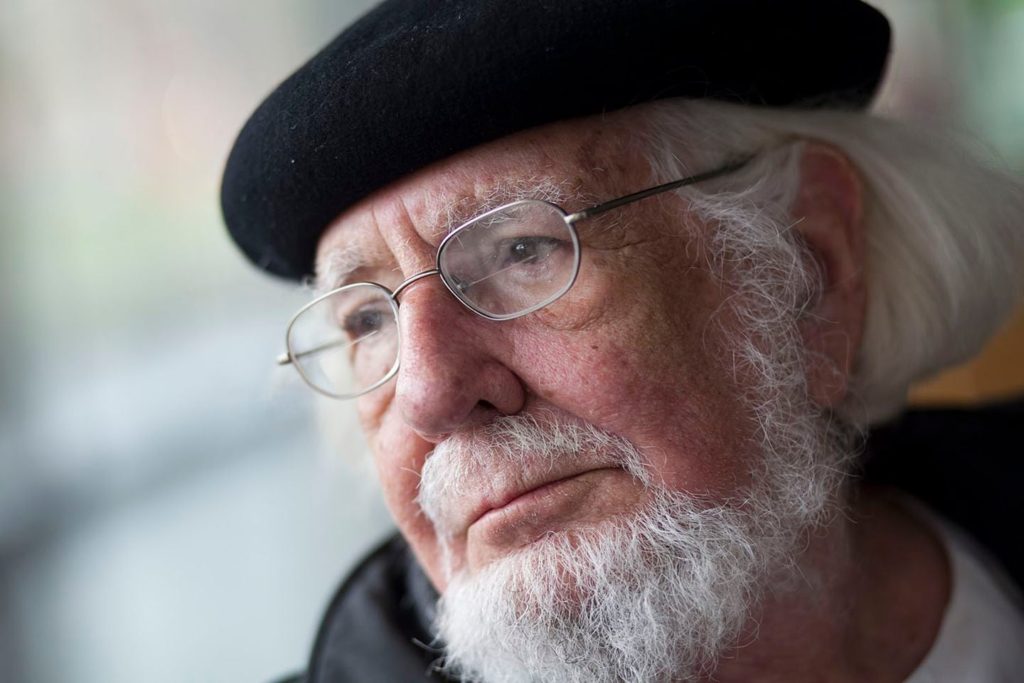
Thursday
Ernesto Cardenal, Niacaragua’s Marxist poet priest, died Sunday at 95, sending me back to poems I taught years ago. Although he wrote some fine revolutionary poems in the years before he split with the Ortega regime (for which he was persecuted), one that stands out for me is a reflection on Marilyn Monroe following her death.
Framed as a prayer, the poem blasts the movie industry, which Cardenal regards as a “den of thieves.” Hungry for love and looking to fame to supply it, the orphan who was raped at nine and who attempted suicide at 16 found herself settling for cheap substitutes: “a cruise on a yacht, a kiss in Singapore, a dance in Rio,/ a reception in the mansion of the Duke and Duchess of Windsor.” (That last one especially sounds like hell on earth.)
Then, when sadness and desperation overwhelmed her, she was directed to psychoanalysis and tranquilizers.
Meanwhile we, who share her hunger, “gave her the script” and pressured her to keep lifting us up. “Forgive us all,” the poet asks,
for this our 20th Century
and the Mammoth Super-Production in whose making we all shared.
In the end, Cardenal imagines God at the other end of Marilyn’s never completed phone call. And now he too “goes into Your presence” without any aids. He too finds himself “[l]onely as an astronaut facing the darkness of outer space.”
Prayer for Marilyn Monroe
Lord
accept this girl called Marilyn Monroe throughout the world
though that was not her name
(but You know her real name, that of the orphan raped at nine,
the shopgirl who tried to kill herself aged just sixteen)
who now goes into Your presence without make-up
without her Press Agent
without her photographs or signing autographs
lonely as an astronaut facing the darkness of outer space.
When she was a child, she dreamed she was naked in a church
(according to Time)
standing in front of a prostrate multitude, heads to the ground,
and had to walk on tiptoe to avoid the heads.
you know our dreams better than the psychiatrists.
Church, house, or cave all represent the safety of the womb
but also something more. . . .
The heads are admirers, so much is clear (that
mass of heads in the darkness below the beam to the screen).
But the temple isn’t the studio of 20th-Century Fox
who made Your house of prayer a den of thieves.
Lord,
in the world defiled by radioactivity and sin,
surely You will not blame a shopgirl
who (like any other shopgirl) dreamed of being a star.
And her dream became “reality” (Technicolor reality).
All she did was follow the script we gave her,
Forgive her Lord and forgive all of us
for this our 20th Century
and the Mammoth Super-Production in whose making we all shared.
She was hungry for love and we offered her tranquilizers.
For the sadness of our not being saints
they recommended Psychoanalysis.
Remember Lord her increasing terror of the camera
and hatred of make-up (yet her insistence on fresh make-up
for each scene) and how the terror grew
and how her unpunctuality at the studios grew.
Like any other shopgirl
she dreamed of being a star.
And her life was as unreal as a dream an analyst reads
and files.
Her romances were kissed with closed eyes
which when the eyes are opened
are seen to have been played out beneath the spotlights
and the spotlights are switched of
and the two walls of the room (it was a set) are taken down
while the Director moves away notebook in hand,
the scene being safely canned.
Or like a cruise on a yacht, a kiss in Singapore, a dance
in Rio,
a reception in the mansion of the Duke and Duchess of Windsor
viewed in the sad tawdriness of a cheap apartment.
The film ended without the final kiss.
They found her dead in bed, hand on the phone.
And the detectives never learned who she was going to call.
It was as
though someone had dialed the only friendly voice
and heard a prerecorded tape just saying, “WRONG NUMBER”;
or like someone wounded by gangsters, who
reaches out toward a disconnected phone.
Lord, whoever
it may have been that she was going to call
but did not (and perhaps it was no one at all
or Someone not in the Los Angeles telephone book),
Lord, You pick up that phone.
(trans. Donald D. Walsh)

